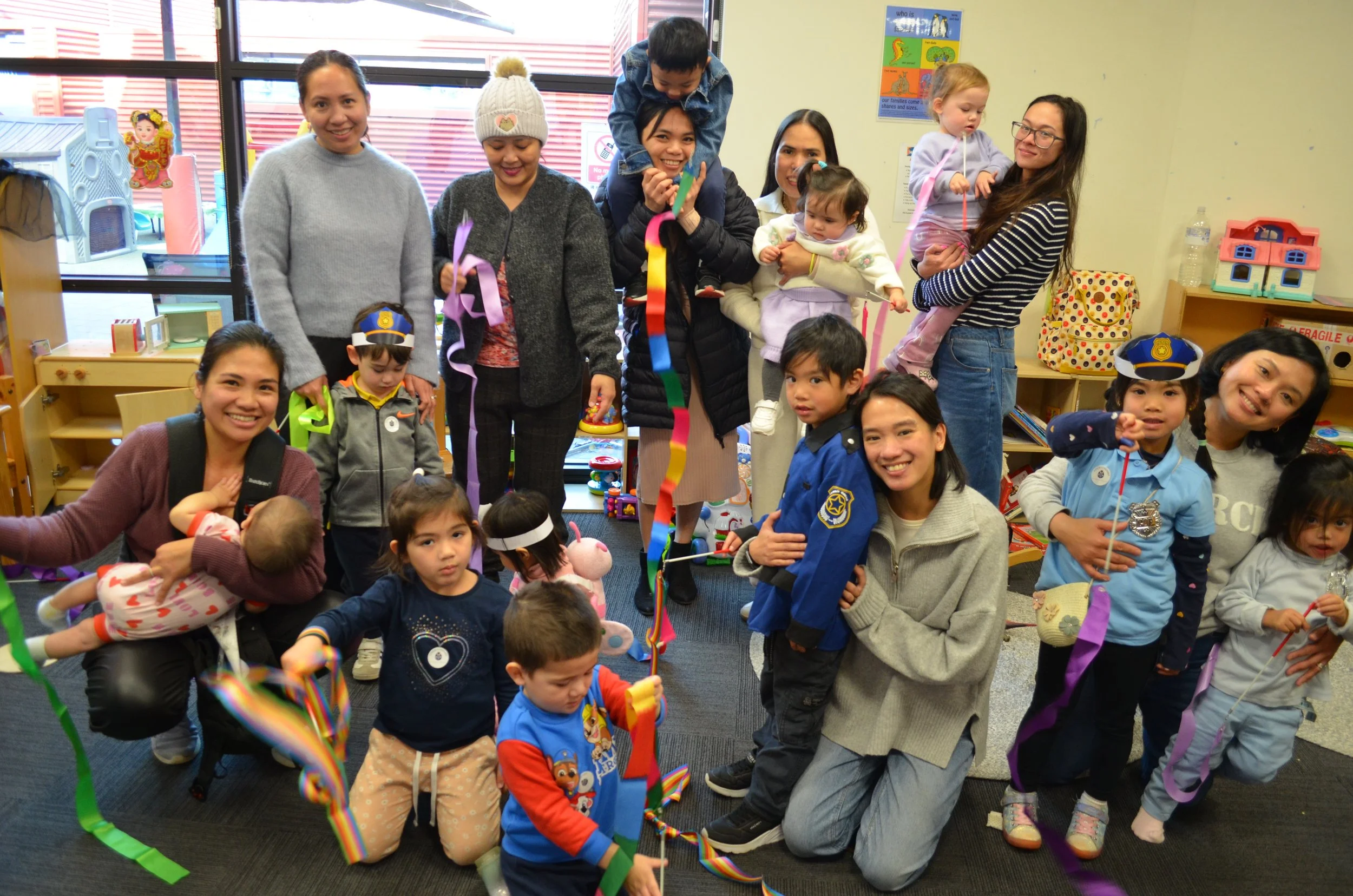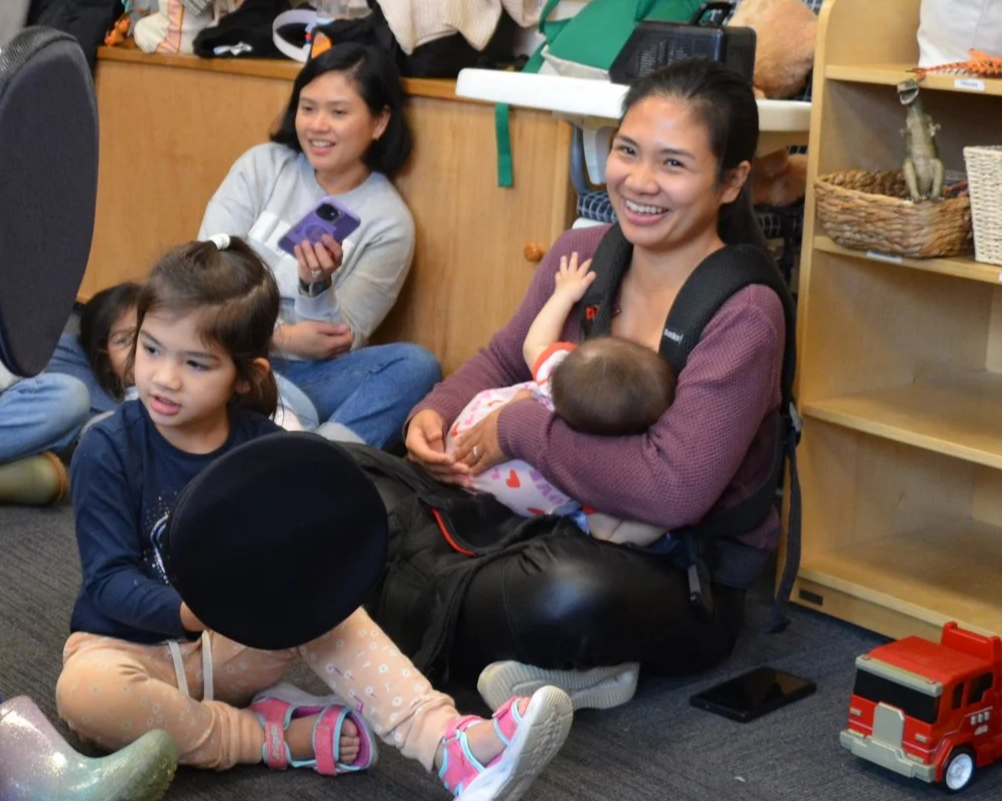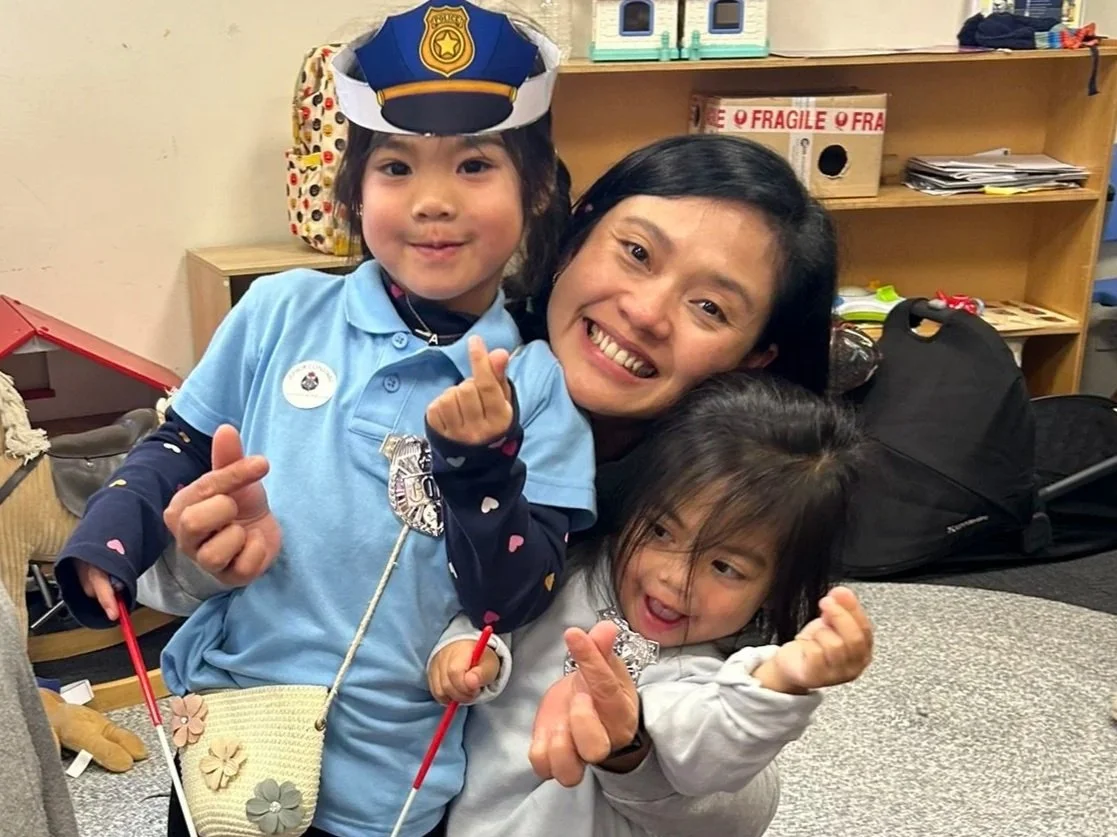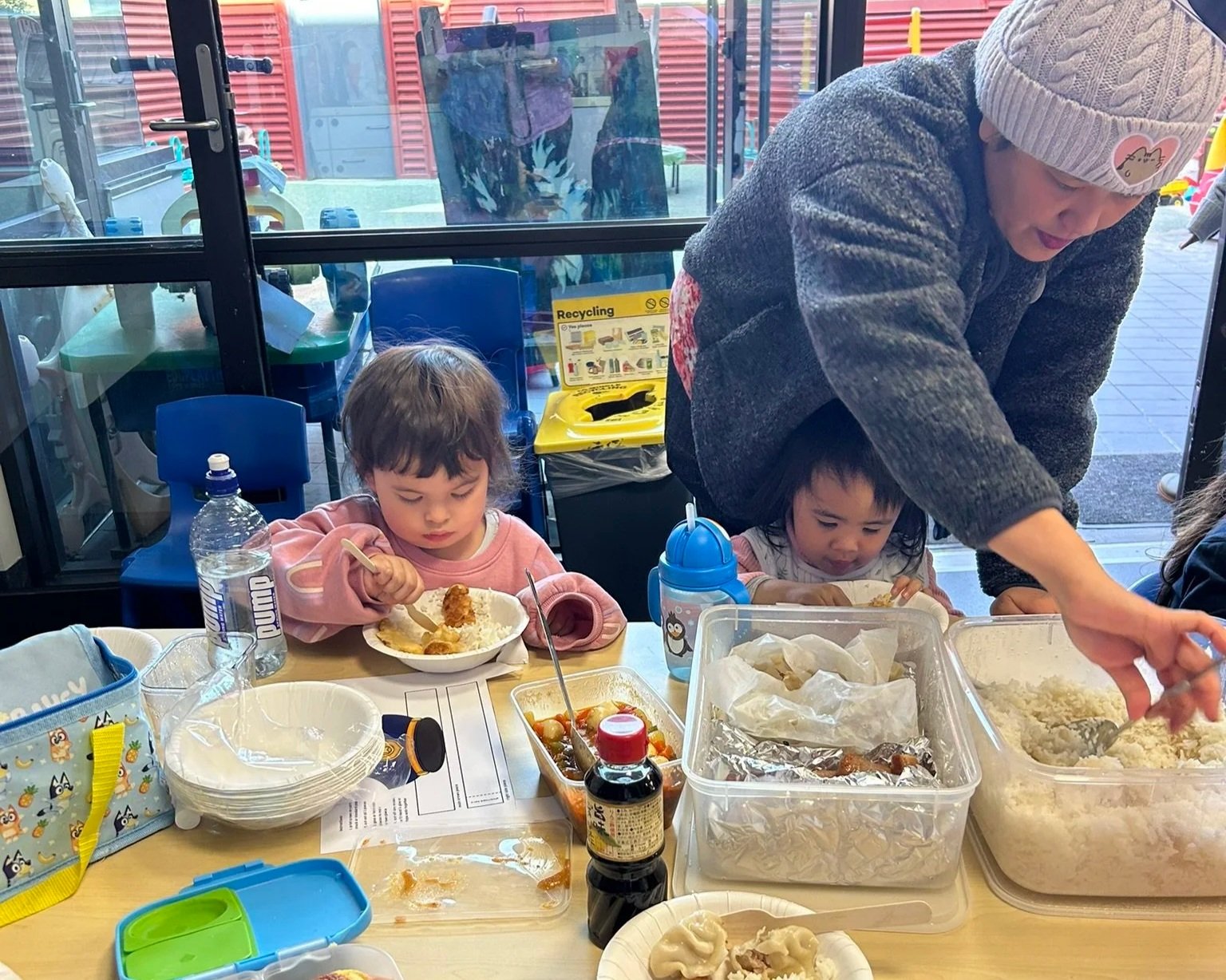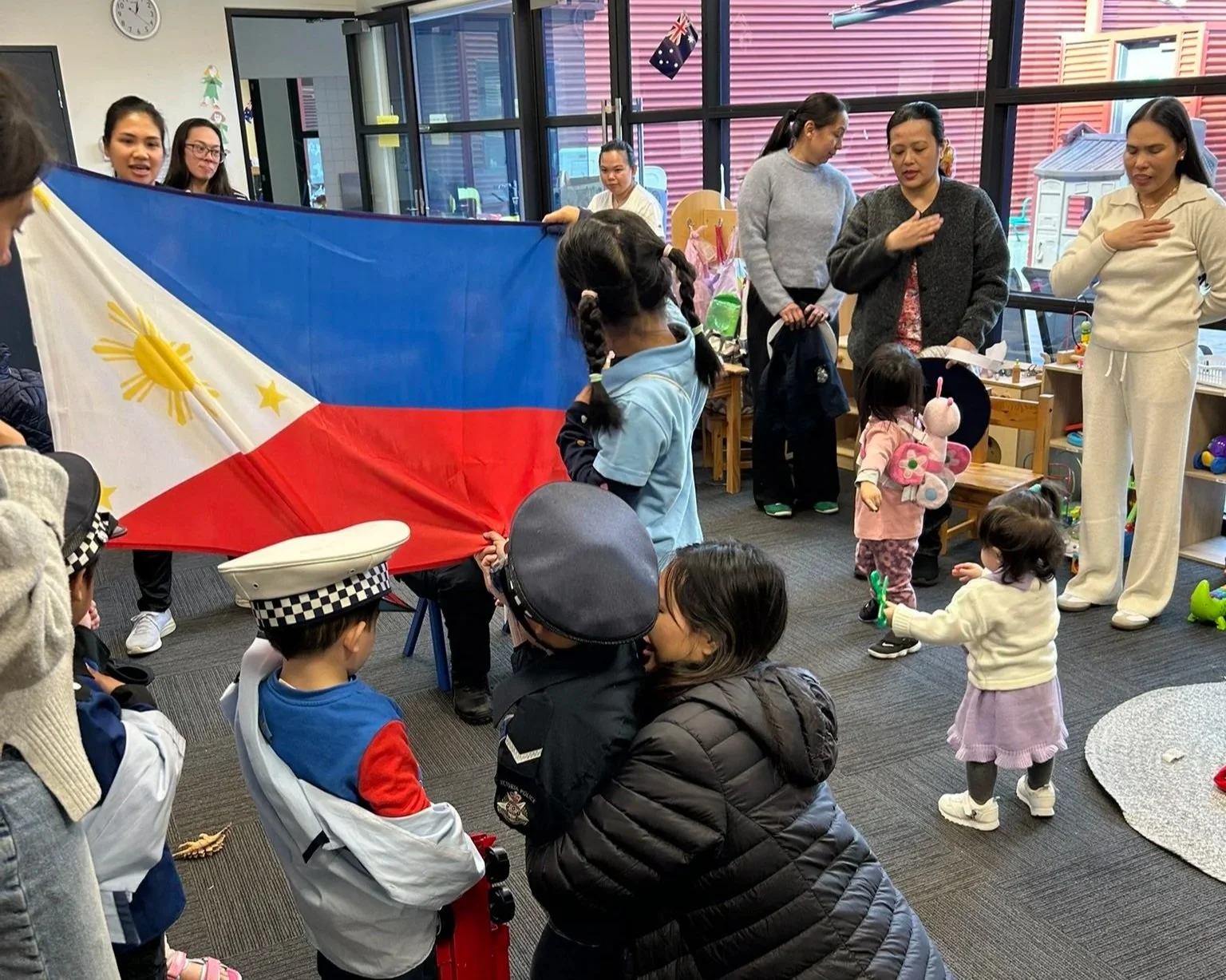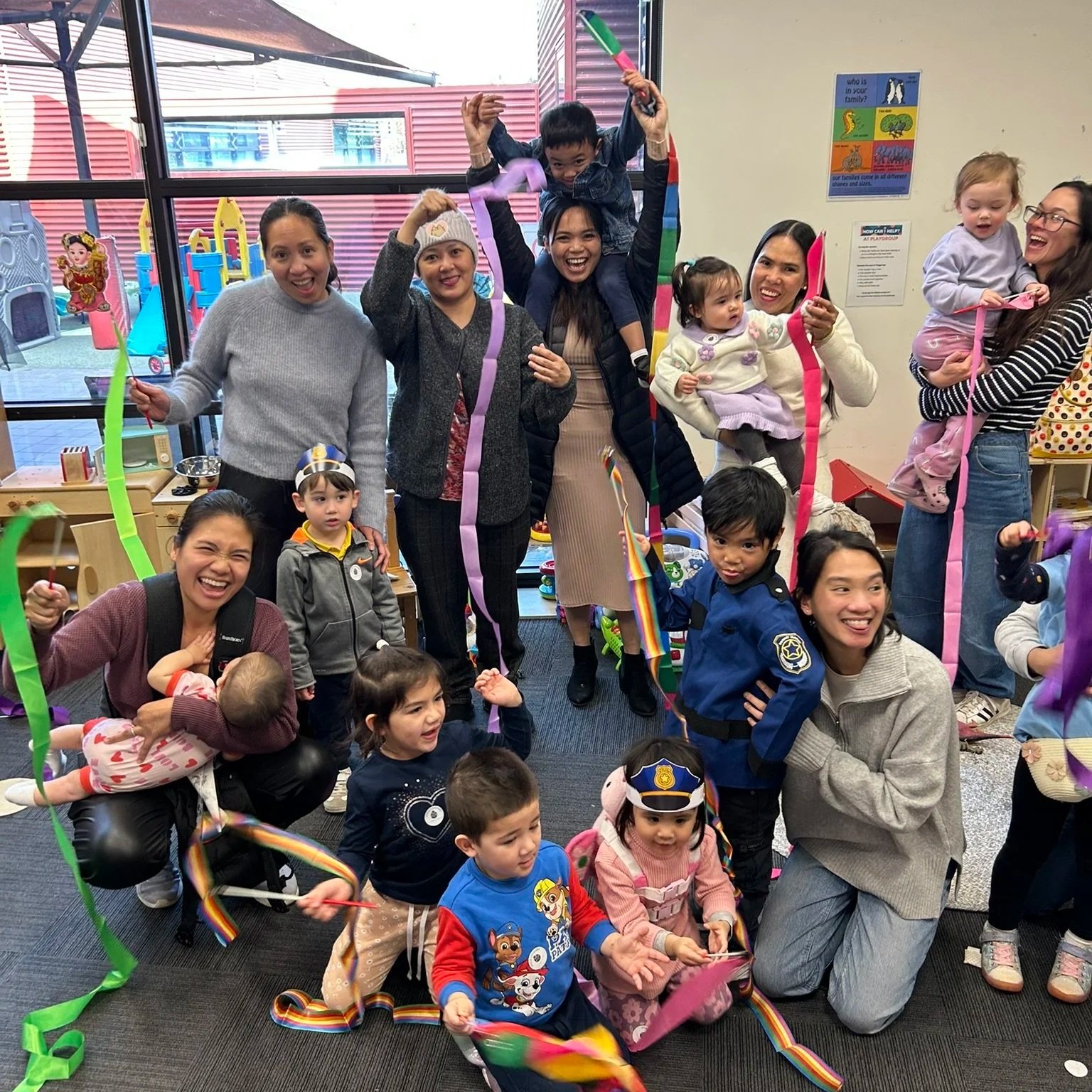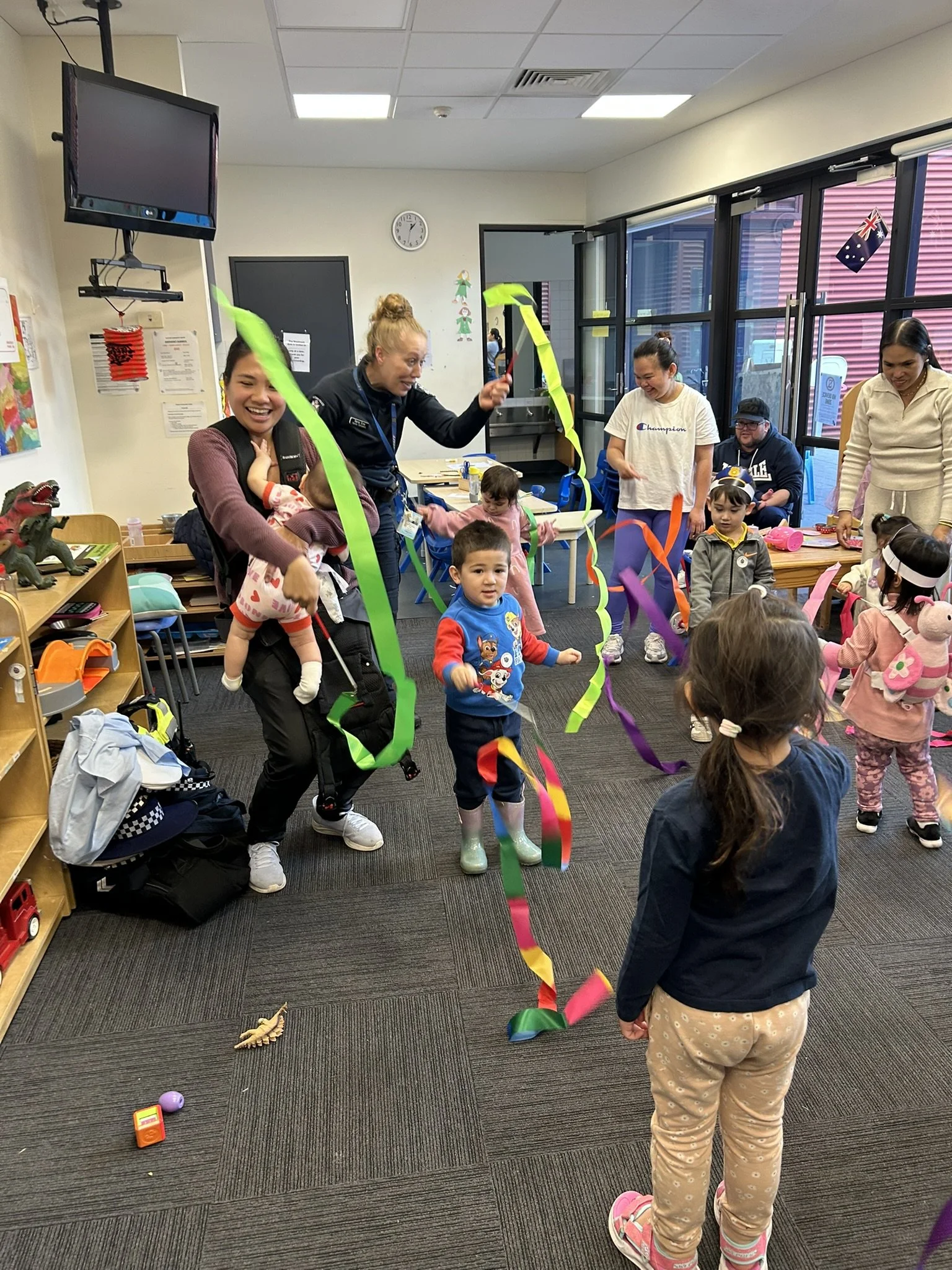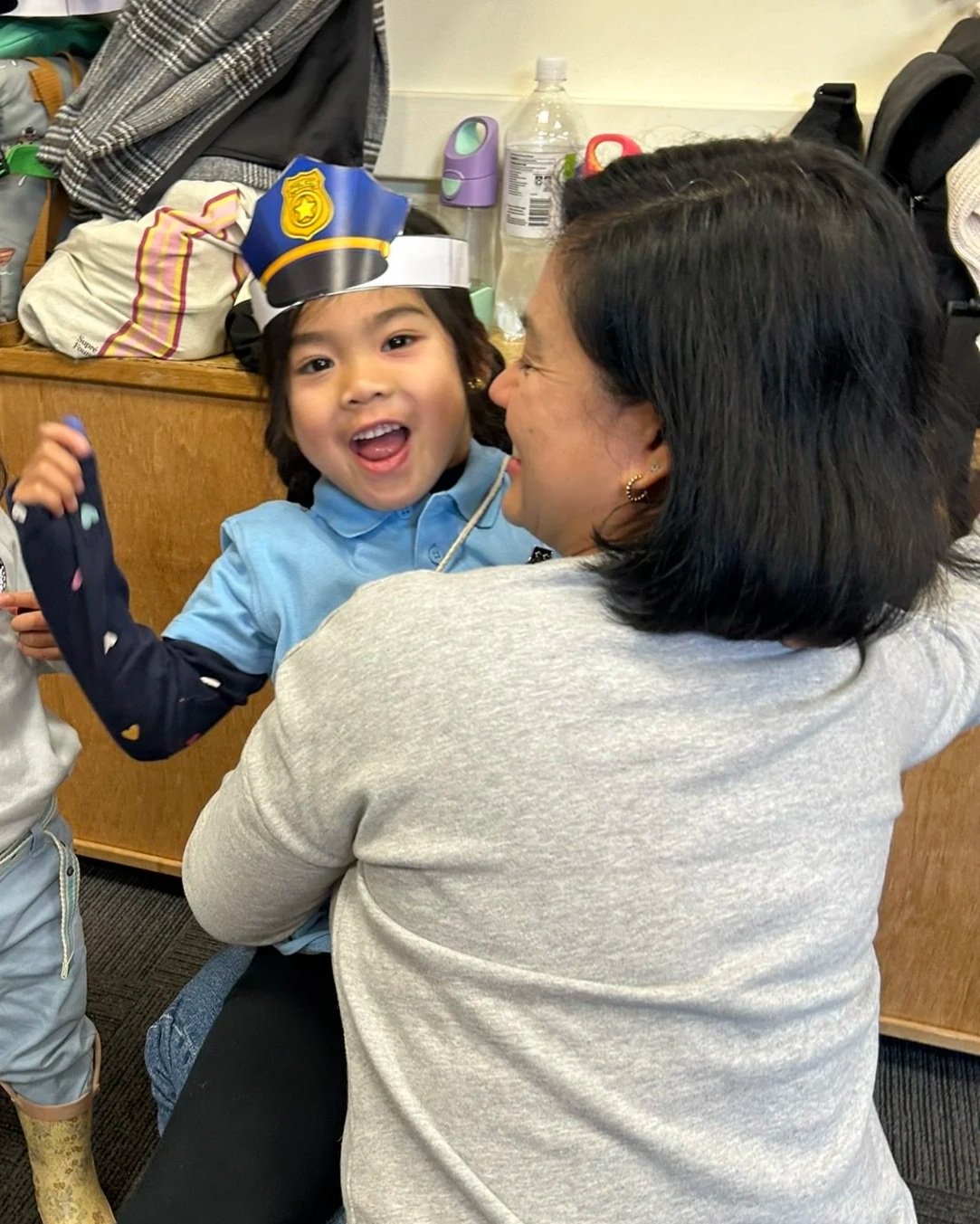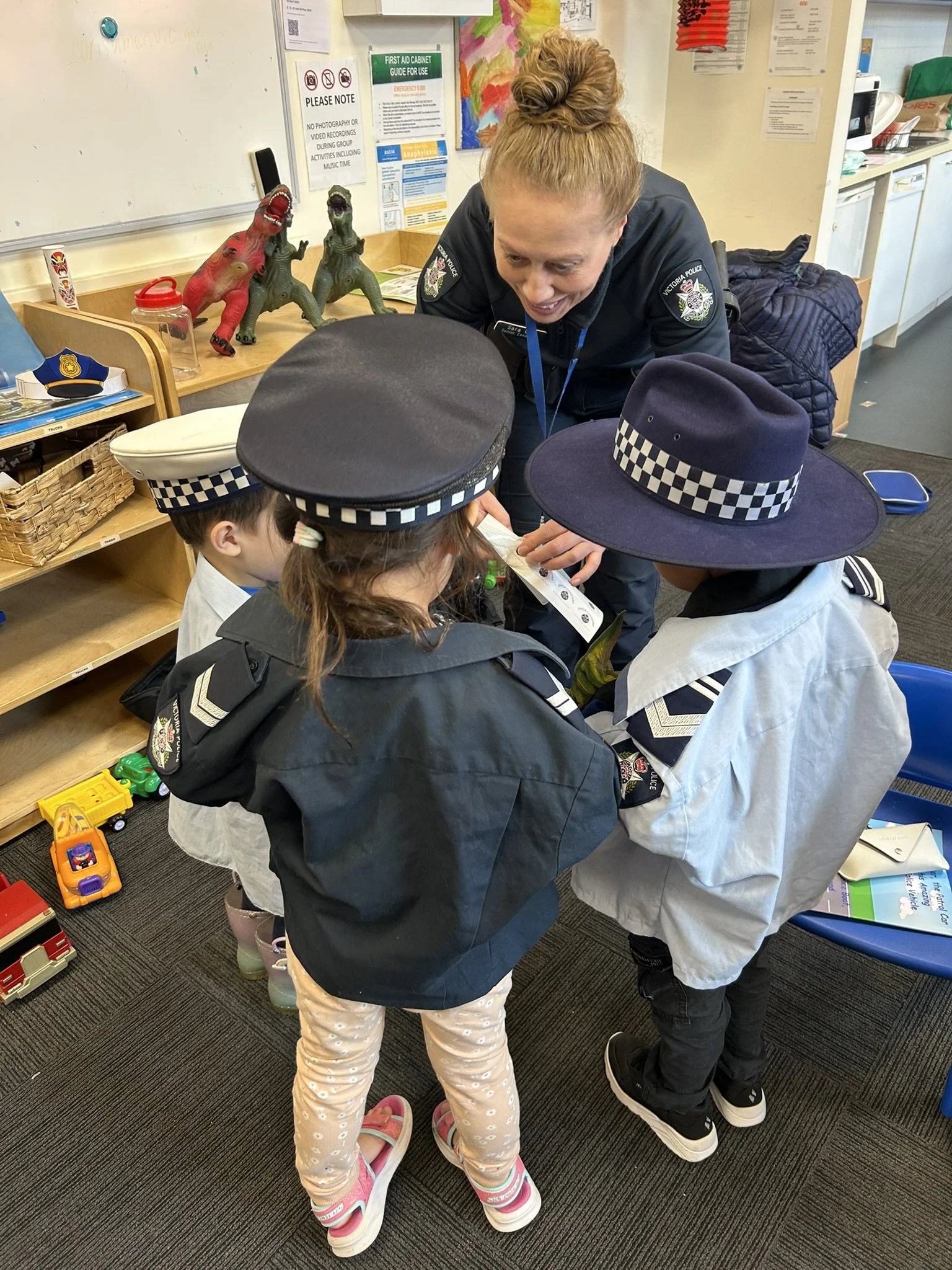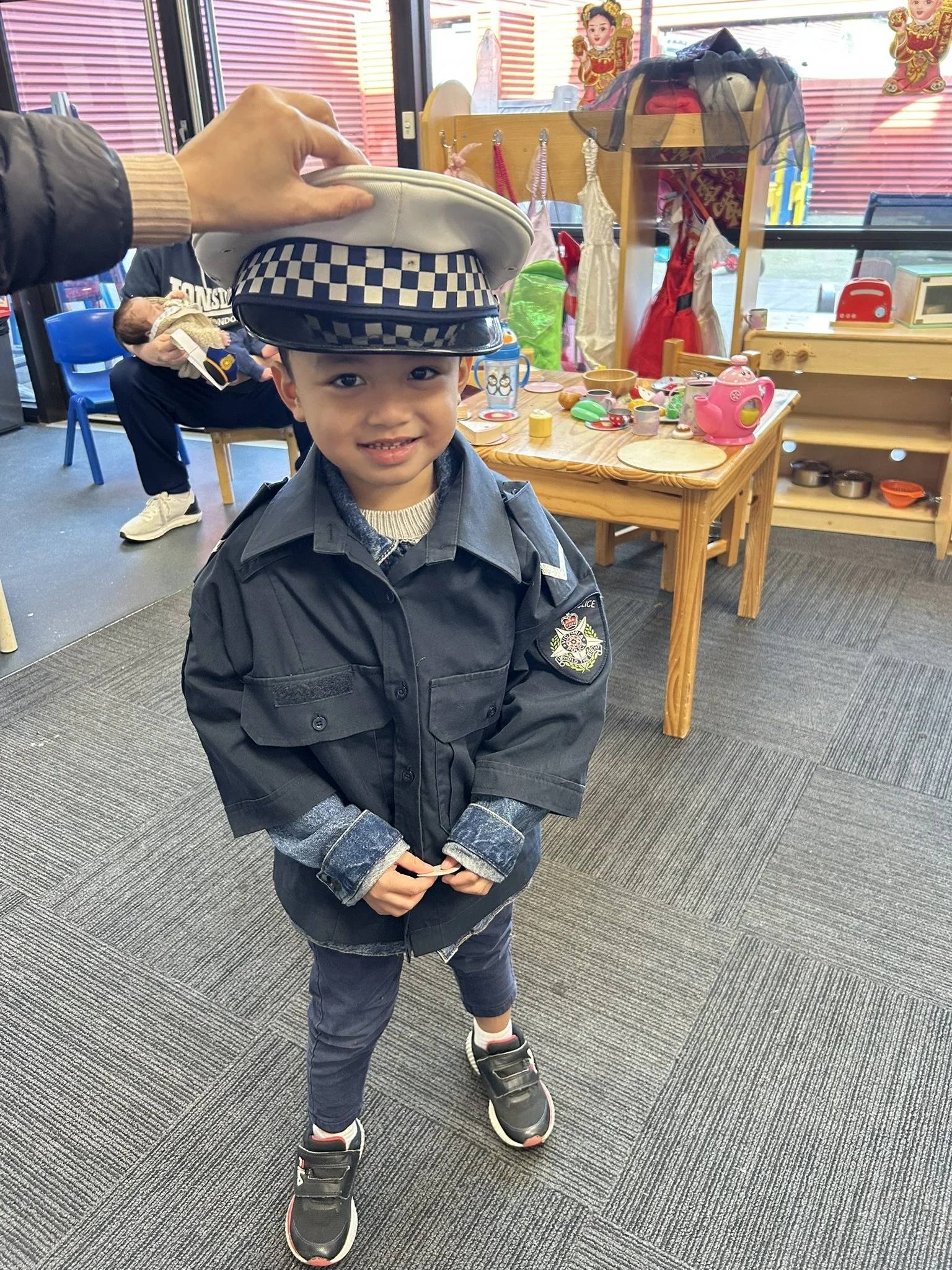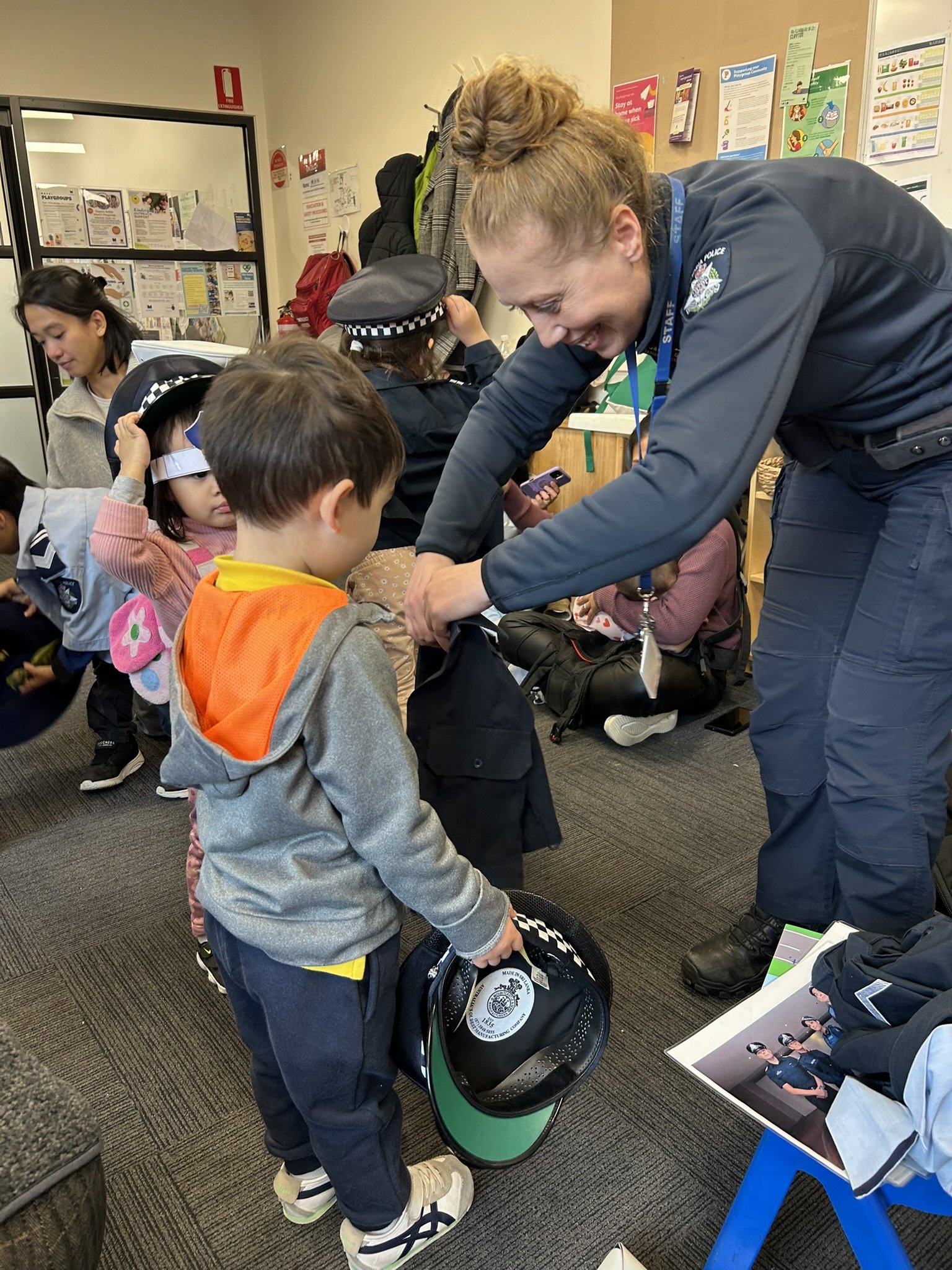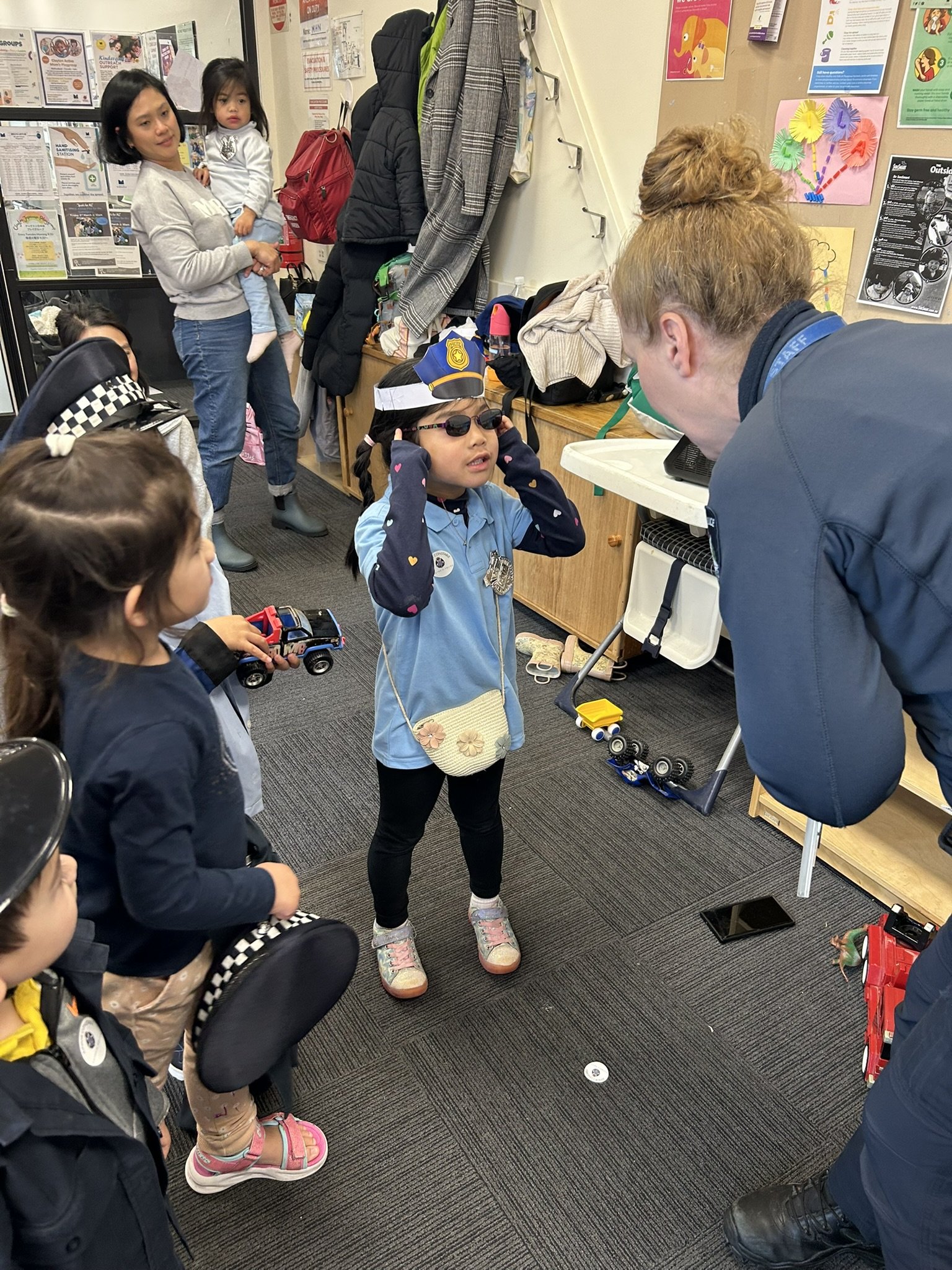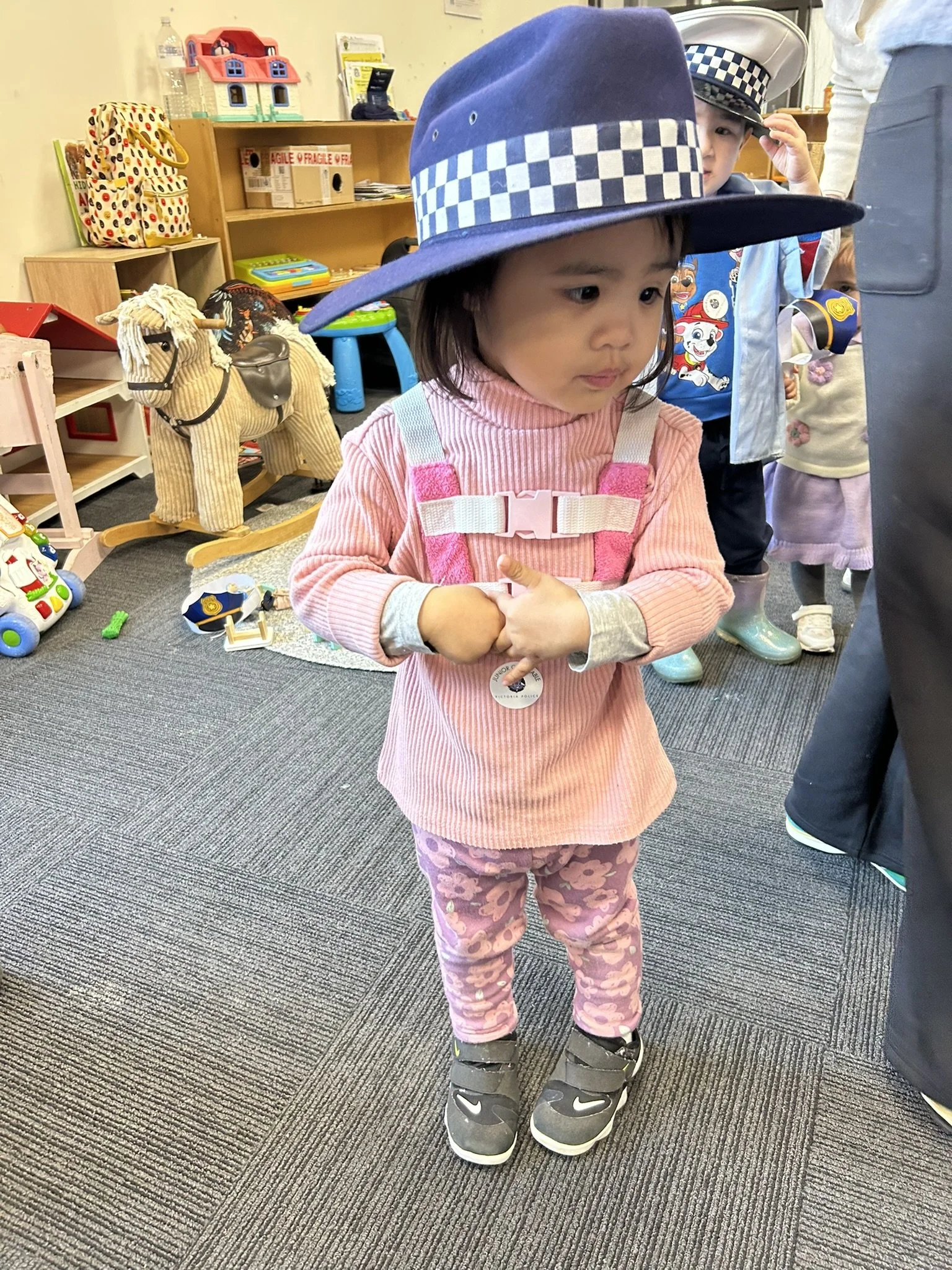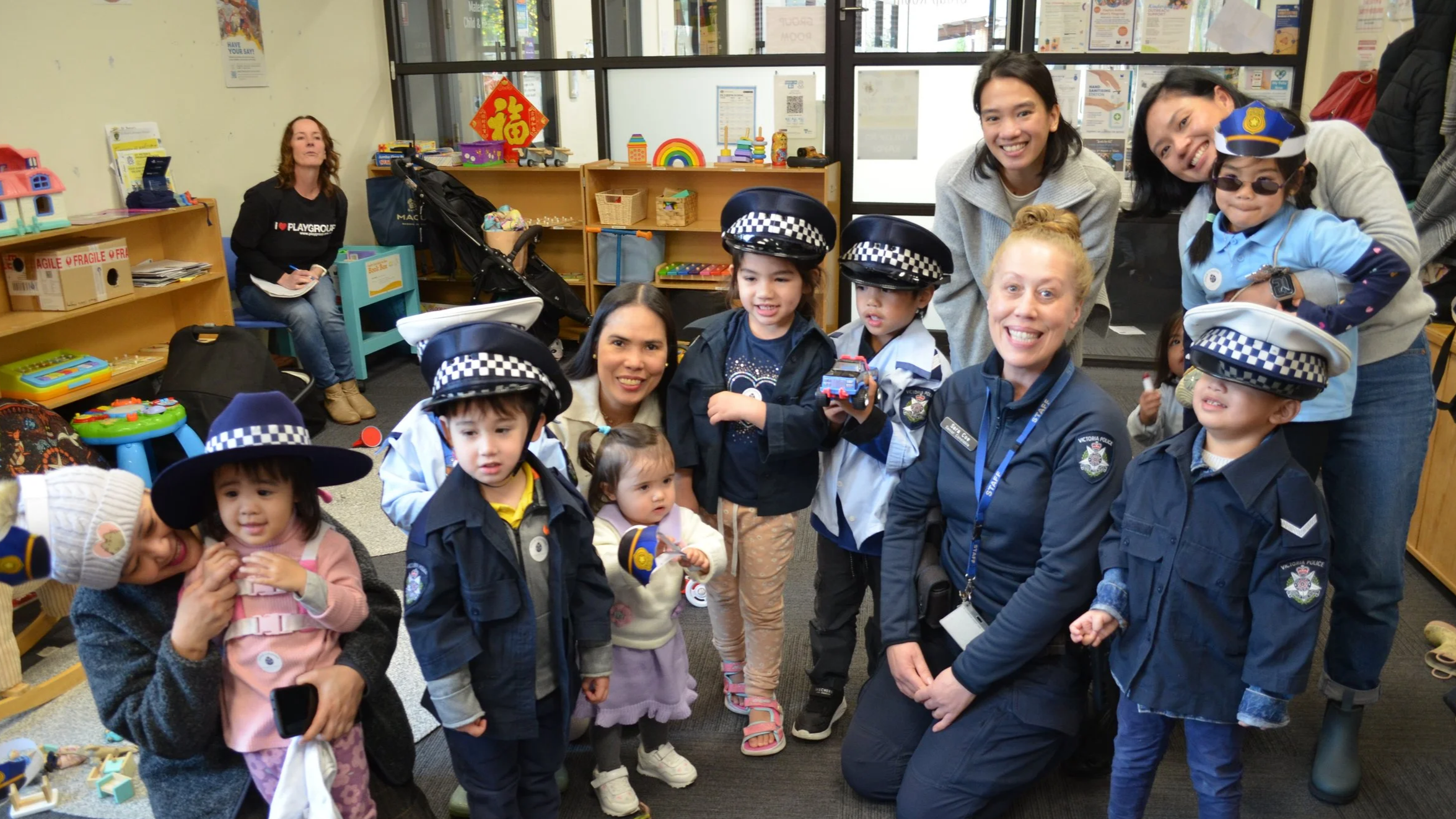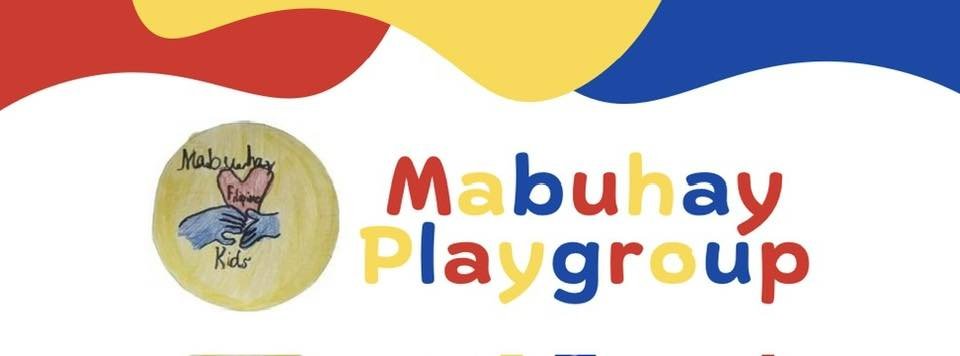Mabuhay! Warm wishes from the Filipino playgroup who come together to celebrate their culture through song, stories, food and play.
A big component of what is shared is a sense of identity and experience.
The language of our youth, of our earliest spoken expression, resides in the deep reservoirs of time- of our ancestors, our history. Moreover, the mothers here know, it is a part of what makes them who they are.
So then, to hear their young children sing a song in their native Tagalog language, to hear them understand the words in a familiar storybook and join in is a great recognition and joy- the generational ties carry on.
“We thought, wouldn’t it be nice for our kids to play with other children that have similar values, similar language, similar features as well and for them to have that identity and be proud of their Filipino tradition and heritage,” said Viela, who runs the playgroup.
Viela volunteers her time, as do all the mums here who help out.
“It definitely means a lot. How we got inspired to form this group.”
“It’s important for us, they will start asking questions.”
And the children do, in their beautiful innocence. They want to be involved, they want to engage. At this time in their lives, it is rich terrain for brain development. The opportunity for the children to absorb through shared experiences, through osmosis, is strong.
“It really helps, the socialisation,” said Grace, mother of two. “They have a lot- their minds are engaged and their minds are like fed on what’s happening and when the teacher is at the front they do respect, listen and engage with the activities.”
Many of the mums here were born in the Philippines, their children born in Australia.
Grace wants her two children to know how important both cultures are. While her children are becoming proficient in English here, they can get left behind when they return to the Philippines.
“I want them to learn and have that identity and it’s in their minds and their hearts, wherever they go their own origin as well to be honest.”
Grace home schools her two- and five-year-old children and said that the playgroup provides a great curriculum, knowledge and a chance to practice their native language, to be bilingual. The latter is of great importance to her.
“It’s the basics, the foundations of our language in the Philippines- and the place as well, it’s safe with a lot of resources for the kids as well.”
The parents are role modelling to their children. Grace talks about how they all dance together, the children watching on and seeing what the adults are doing. Like the many children that have come before them, they are mimicking the goings on, they are seeking to connect and be loved. There is so much of that held lightly, but with gusto, at this playgroup.
“It’s a great feeling because you are a part of what they are doing too.”
Last month, after a Filipino morning tea, they learned about the national flag. At home, Grace and her kids reviewed what they had learned, they had their own craft activity and spoke about the meaning, remembering and sharing.
“We show them that in the Philippines, we have coconut trees, those things,” said Viela. “We introduce them to different Filipino food as well, not just stories and the singing, there’s food. And festivals too. We did Filipino games.”
The playgroup has helped the mums forge meaningful connections, alongside the kids.
“It’s good for us,” said Viela.
“As a mum, it has been good for me to meet new mums and families as well, I think that’s what I get out of it and my kids get to play with other children as well. It is very fulfilling.”
Abby said, being with other mums with the same passion of teaching our kids, has been a big support.
“Having the community of same culture. I am from the Philippines, he was born here and having that same friends who want to speak Tagalog to their kids as well. It’s just been fun seeing him get along with other kids as well.”
The reinforcement has solidified.
The Filipino playgroup initially began in Melbourne’s CBD. It grew rapidly and waiting lists were in place to stem the flow.
Viela was the one who took it upon herself to start another group, finding a place to meet, in Melbourne’s south-east. She has since applied to be part of the Great Start initiative brought into existence by Playgroup Victoria, the peak body for playgroups. The program is designed to support new and upcoming playgroups with support, mentoring and money for resources.
Jo O’Reilly from Playgroup Victoria came to meet Viela and begin their collaboration.
“It’s so wonderful to see playgroups like Mabuhay thriving- creating strong, culturally rich communities where families feel seen, supported, and proud of who they are.”
“Programs like Great Start help make this possible by providing access to culturally relevant resources they may not otherwise afford or have access to. Being mentored by trained Playgroup Victoria staff also builds facilitator confidence and supports inclusive, culturally respectful environments".
Barbi Kenny from Monash Council also came to visit the group and see how they are going.
“From the very beginning you can see she has the passion to bring people together,” said Barbi.
The venue was available, it is close to a train station and it has now been running for several months and it is growing.
“So we know Monash is such a rich community for different cultures and it is so important that I see them connecting and seeing that they are using their language and bringing the food to share.”
Barbi loves the updates that Viela sends her each week.
“Viela is so wonderful on a Friday she sends me an update of what they have done, she shows me some photos so I can see the benefits of what is happening here in this playgroup so it is truly rewarding.”
“I let her run it as she does as she is phenomenal.”
That fact that the playgroup is free does not go unnoticed. It reduces the barriers to attending.
“We have lots of stay-at-home mums and it’s nice for them to come out, have a purpose, have an outing, they know their kids are getting some educational learning but at the same time their socialising as well- it helps for both,” said Viela.
“Here we are now so we have done this every week during the school terms and I think the bonding in the group is really gelled, we are all looking after each other.”
“Initially I was scared to (laughs), I am a nurse but I am a stay-at-home mum now, I’ve got no previous community building experience- we help each other out.”
Viela said she was a bit scared at first to run the storytime but not anymore.
“We do bilingual storytime so I do explain the Filipino counterparts in English so they have an idea now that my Mum is speaking Tagalog. I hear my son counting one to ten in Tagalog while having a bath so it’s just those little things, they really mean a lot.”
The forethought for each session is inspiring. On this particular day, Viela had organised a police officer to come along and meet with the children, which for anyone with a toddler who loves emergency vehicles, this was of great excitement to the children.
For six years Senior Constable Sara Coe has been trying to integrate one visit a week to little people. The endeavour? To break down stereotypes and reassure children that they are safe and can approach police if they need help.
“The most important thing I want you to remember from today is we are friendly, we are here to help you and we are just like your mummies or daddies, aunties or uncles or family friends and when we come to work we are in our police clothes and do our police work and when we are at home we are just normal people like your mummies and daddies- and if you ever see us out and about in the community when you are with your mummies or daddies or grown up people, I want you to know that if you come up and wave, it really makes our day. It makes us so happy when people come up to us and say hello to is.”
This is another powerful connection to community and to culture.
The children are all aflutter during the presentation and storytime. They are eager to share their own stories and tell Sara about their families. The reason this is so natural is due to the comfort the children feel here, encircled by their mums and the other mums they have come to know.
On the way out, Sara stops and says:
“I still have really really strong relationships with the women I met in my playgroup when my kids were babies and my kids are 18 and 21 now and I still see two of those women, we are really good friends. That’s what happens in playgroups, you build really strong friendships. It’s about that support and connection.”
This resonates with the parents here. The sense of belonging at support cannot be underestimated.
Mabuhay in Tagalog directly translates as “Long live” and that is what is represented here. A passion for the language, culture and family customs of the Filipino families to live on and allow the upcoming generations to feel safe, secure and like they belong. This shows them to always be proud of who they are, as we all should be.
Connect and Join Mabuhay Playgroup
Article by Sinead Halliday
Photography by Mylie Nauendorf

